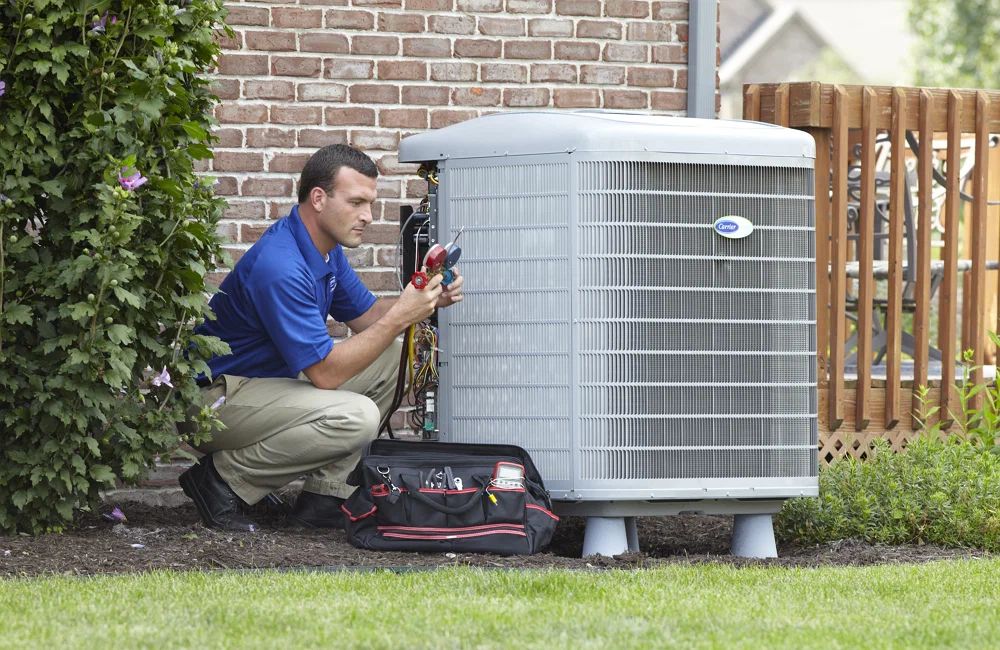Installing a new HVAC system is a significant investment for any homeowner. If you have a 2000 square-foot house, knowing what to expect in terms of costs and options can help you plan better. HVAC, which stands for heating, ventilation, and air conditioning, plays a vital role in maintaining comfort throughout your home, whether it’s the heat of summer or the chill of winter.
In this post, we’ll break down the factors that influence the cost of a new HVAC system, the types of systems available, and some tips to ensure you make the most of your investment.
Factors Affecting HVAC Costs
The cost of a new HVAC system is not fixed and can vary depending on several factors:
- System Type: Central air systems, heat pumps, ductless mini-splits, and furnaces all come with different price points. Central air systems are the most common for 2000 sq ft homes and typically cost more upfront.
- Energy Efficiency: Modern HVAC systems come with SEER (Seasonal Energy Efficiency Ratio) ratings for cooling and AFUE (Annual Fuel Utilization Efficiency) ratings for heating. Higher efficiency units can reduce energy bills but usually cost more initially.
- Installation Complexity: If your home requires new ductwork or electrical upgrades, installation costs will rise. Older homes often need additional modifications to support a modern system.
- Brand and Warranty: Some brands provide longer warranties and more reliable components, which can influence cost.
On average, homeowners can expect to pay between $5,000 and $12,000 for a new HVAC system in a 2000 sq ft house, including installation. The exact price will depend on the factors mentioned above and the region where you live.
If you want to keep your HVAC running efficiently for years, scheduling regular HVAC Maintenance Services in Panama City Beach FL is essential. These services can prevent costly repairs and extend the lifespan of your system.
Types of HVAC Systems for 2000 Sq Ft Homes
1. Central Air Conditioning with Furnace
Central air paired with a furnace is ideal for homes that experience both hot summers and cold winters. These systems provide uniform cooling and heating but require ductwork, which can increase installation costs if your home doesn’t already have it.
2. Heat Pumps
Heat pumps work as both air conditioners and heaters, making them energy-efficient options for moderate climates. They may not perform as efficiently in extremely cold areas, but they can save on energy costs over time.
3. Ductless Mini-Split Systems
Ductless systems are perfect for homes without existing ductwork or for adding climate control to specific rooms. These units are easier to install but may cost more per unit of cooling or heating compared to central systems.
4. High-Efficiency Furnaces
If your home relies primarily on heating, a high-efficiency furnace paired with a basic air conditioning unit might be the most cost-effective solution.
Installation and Labor Costs
Installation is a critical part of HVAC pricing. Even the best system can underperform if not installed correctly. Labor costs can range from $1,500 to $3,000, depending on system complexity, location, and whether any ductwork adjustments are required.
For homeowners looking for trusted installers, companies like Comfort Solutions Heating & Air LLC have a reputation for professional and reliable service. They offer knowledgeable guidance on choosing the right system, efficient installation, and long-term support, which can make a big difference in comfort and savings.
Energy Efficiency and Long-Term Savings
Investing in a more energy-efficient HVAC system may cost more upfront but can save significantly on monthly energy bills. For a 2000 sq ft home, a high-efficiency system can reduce your annual energy consumption by 20-40%.
Look for systems with Energy Star ratings, programmable thermostats, and smart home integration to maximize efficiency. Regular maintenance also plays a key role in maintaining performance and reducing long-term costs.
Budgeting Tips for a New HVAC System
- Get Multiple Quotes: Always compare at least 2-3 estimates from reputable contractors. This ensures you understand the market rate and find competitive pricing.
- Consider Financing Options: Many HVAC companies offer financing plans to spread the cost over time.
- Plan for Maintenance: Regular maintenance can prevent major issues and keep your system efficient. Investing in a maintenance plan early can save money over the system’s lifetime.
- Look Beyond Price: While cost is important, reliability, warranty, and service quality matter more in the long run.
For example, homeowners who partner with companies like Comfort Solutions Heating & Air, LLC benefit from comprehensive support and high-quality installation. Their commitment to customer satisfaction and professional service ensures homeowners enjoy a worry-free experience with their new HVAC system.
Common Questions About New HVAC Systems
Q: How long does a new HVAC system last?
A: Most modern systems last 15-20 years with proper maintenance.
Q: How often should I schedule maintenance?
A: Ideally, twice a year — once in spring for cooling and once in fall for heating.
Q: Is higher efficiency worth the extra cost?
A: In most cases, yes. Savings on energy bills and reduced wear and tear can justify the higher initial investment.
Conclusion
Installing a new HVAC system in a 2000 sq ft home is a major but worthwhile investment. Understanding the types of systems, installation costs, and energy efficiency options can help you make informed decisions. While the upfront cost may seem high, the long-term benefits of comfort, energy savings, and reliability make it worthwhile.
Scheduling HVAC Maintenance Services in Panama City Beach FL ensures your system continues to operate efficiently for years to come. Choosing a reliable company like Comfort Solutions Heating & Air, LLC can make the process smooth and stress-free, giving you peace of mind and a comfortable home.
Invest smartly, maintain regularly, and enjoy a home that stays cool in the summer and warm in the winter — all while managing costs effectively.

